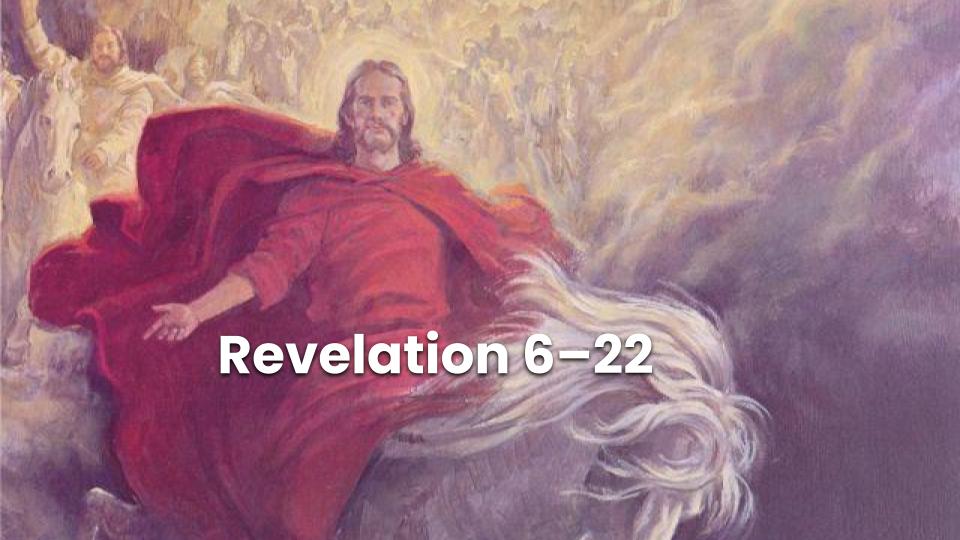The story of Jonah and the great fish is well-known and full of important principles. In this post I want to highlight two aspects of Jonah’s story that we sometimes skip over—Jonah and Jesus, and Jonah and the Gourd.
Jonah and Jesus
Jonah’s story should remind us of another night and another storm. If I were teaching Jonah, I might have students read some verses from Jonah and compare them with verses from Mark 4. One evening, after a long day of teaching, the Savior and his disciples got in a boat to sail to the other side of the Sea of Galilee. We read, “A great windstorm arose, and the waves beat into the boat, so that the boat was already being swamped. But [Jesus] was in the stern, asleep on the cushion; and they woke him up and said to him, “‘Teacher, do you not care that we are perishing?’” (Mark 4:37–38).
Think about those words from the disciples—“Teacher, do you not care…?” Do we ever feel the same way? Maybe we’re going through a really hard time and we think, “Lord, are you asleep? Don’t you care about what I’m going through?” It’s a huge challenge to feel like God isn’t there when we need him.
But of course, Jesus did care, and he was in control. “He woke up and rebuked the wind, and said to the sea, “Peace! Be still!” Then the wind ceased, and there was a dead calm.” (Mark 4:39).
The problem that terrified the disciples did not worry Jesus. You and I might be frightened about our future, but Jesus is not asleep. He tells us, “Why are you afraid?” He has the power to bring calm to our lives, even during great storms.
But there’s even more to this story. As Timothy Keller writes, “Mark is intentionally recapping the Jonah episode…He uses nearly identical words and phrases. Both Jesus and Jonah are in a boat. Both are in storms described in similar terms. Both boats are filled with others who are terrified of death. Both groups wake the sleeping prophets angrily, rebuking them. Both storms are miraculously calmed and the companions saved. And both stories conclude with the men in the boats more terrified after the storm is stilled than they were before.
Every feature is the same—with one rather large apparent exception. Jonah is sacrificed into the storm, thrown into the deep, satisfying the wrath of God so the others will be saved from it—but Jesus is not. Or are the accounts really different at that point?
No, they are not. As Jesus says in Matthew 12:41, he is the ultimate Jonah, who was thrown into the ultimate deep—of eternal justice—for us. How ironic it is that in Mark 4 the disciples ask, “Teacher, don’t you care if we drown?” (Mark 4:38). They believe he is going to sleep on them in their hour of greatest need.
Actually, it’s the other way around. In the garden of Gethsemane, they will go to sleep on him. They will truly abandon him. And yet he loves them to the end. See? Jonah was thrown overboard for his own sin, but Jesus is thrown into the ultimate storm for our sin. Jesus was able to save the disciples from the storm because he was thrown into the ultimate storm.” [If you want this quote formatted in PowerPoint slides, they are part of the “Seeking Jesus Class 11” Powerpoint.]
These connections between Jonah and Jesus are powerful. Jesus saved Jonah, Jesus stilled the stormy sea, and Jesus has the power to calm our troubled hearts. Sometimes that happens because Jesus makes the storm stop, and other times he strengthens us to keep sailing through the storm.
Jonah and the Gourd
After Jonah preached to the people of Ninevah, to his dismay, the people repented and God decided not to destroy them. Jonah complained saying, “Didn’t I say before I left home that you would do this, Lord? That is why I ran away to Tarshish! I knew that you are a merciful and compassionate God, slow to get angry and filled with unfailing love. You are eager to turn back from destroying people. Just kill me now, Lord! I’d rather be dead than alive if what I predicted will not happen.”
The Lord replied, “Is it right for you to be angry about this?” (Jonah 4:2–4, NLT)
This is an important question to consider if we are ever angry with the mercy God gives to others. I can picture Jesus, saying to those who had labored all day in the vineyard and were upset about their pay, “Is it right for you to be angry about this?”
In what other settings might the Lord say to me, “Is it right for you to be angry about this?”
So Jonah went to the east side of the city, sat down on his camping chair, popped some popcorn, and waited to see what would happen. This next part might be the most important lesson from Jonah’s story:
“The Lord God arranged for a leafy plant to grow there, and soon it spread its broad leaves over Jonah’s head, shading him from the sun. This eased his discomfort, and Jonah was very grateful for the plant. But God also arranged for a worm! The next morning at dawn the worm ate through the stem of the plant so that it withered away. And as the sun grew hot, God arranged for a scorching east wind to blow on Jonah. The sun beat down on his head until he grew faint and wished to die.” (Jonah 4:6-8, NLT).
When Jonah complained about the death of his gourd, the Lord taught Jonah (and us) a timeless lesson. The Lord said to Jonah, “You feel sorry about the plant, though you did nothing to put it there. It came quickly and died quickly. But Nineveh has more than 120,000 people living in spiritual darkness, not to mention all the animals. Shouldn’t I feel sorry for such a great city?” (Jonah 4:10-11, NLT).
The Book of Jonah is unique in that it ends with a question; Jonah’s response, and the conclusion of the story are not included. When I read or teach the Book of Jonah, I like to spend some time pondering that question from the Lord: “Should not I pity Nineveh?” (ESV) “Should not I spare Nineveh?” (KJV) “Should I not have concern for the great city of Nineveh?” (NIV)
How does Jonah respond? While there are some Jewish legends about his response, ultimately we don’t know. I think the Book of Jonah intentionally does not include any response—because the author wants to end on the force of a question. Each of us must listen to the Lord’s question and answer it for ourselves. When teaching Jonah I sometimes ask students to write down 1-2 paragraphs concluding the story of Jonah. What happens in response to the Lord’s question:
“Should not I pity Nineveh?”
If you’re looking for more context and insights on Jonah , you might enjoy this BYU Roundtable discussion.
If you’d like to receive emails with my latest Come Follow Me updates and also get a free chapter from Considering the Cross: How Calvary Connects Us with Christ, sign up here.






